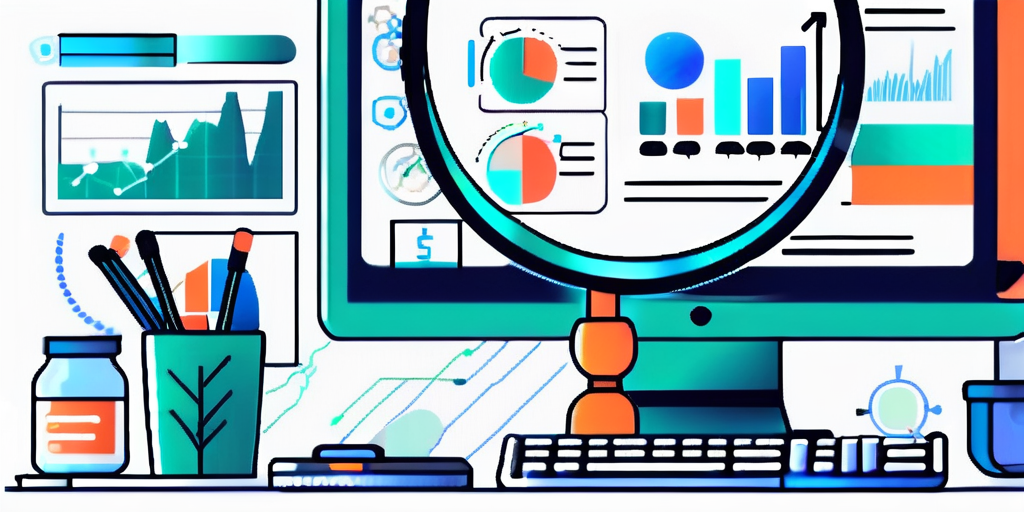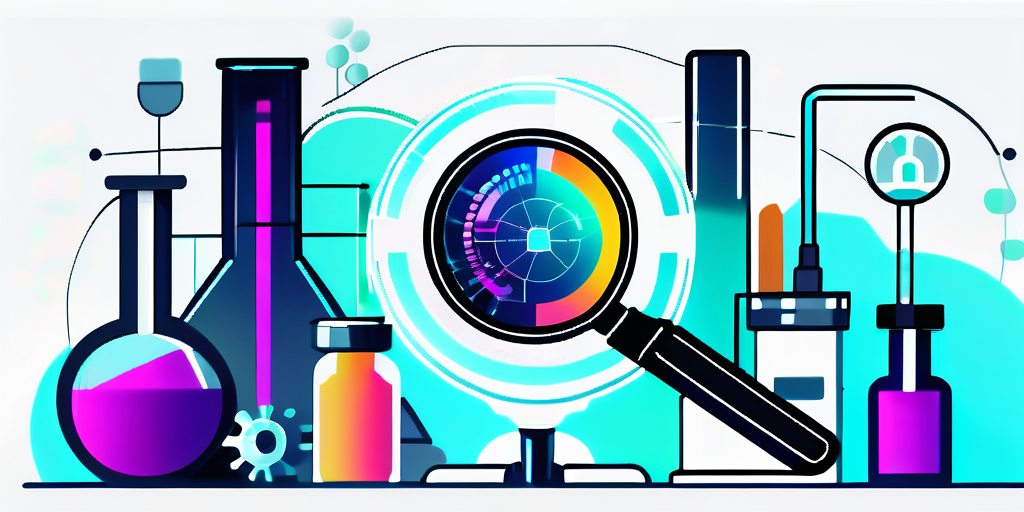Quick CV Dropoff
Send us your CV

Are you interested in working in the field of pharmacovigilance? If so, you've come to the right place. In this article, we will explore different pharmacovigilance jobs, discuss the required skills and qualifications, navigate the job market, and provide tips for landing your dream job. We will also delve into the essential training and education needed for a career in pharma covigilance, as well as the future trends in this industry. So, let's dive in and explore the exciting world of pharma covigilance careers!
Before we delve into the various pharmacovigilance jobs, let's first understand what this field is all about. Pharmacovigilance is the science and activities related to the detection, assessment, understanding, and prevention of adverse effects or any other drug-related problem. It plays a crucial role in ensuring the safety and efficacy of pharmaceutical products.
Pharmacovigilance professionals are the unsung heroes of the healthcare industry, working diligently behind the scenes to protect patients from potential risks associated with medications. They are the guardians of drug safety, constantly monitoring and evaluating the safety profile of pharmaceutical products.
In the healthcare industry, pharmacovigilance professionals are responsible for monitoring and evaluating the safety profile of pharmaceutical products. They collect and analyze data from various sources such as clinical trials, patient reports, and regulatory authorities to identify and assess potential risks associated with medications.
These dedicated professionals meticulously comb through vast amounts of data, searching for patterns and signals that could indicate adverse effects or other drug-related problems. Their expertise allows them to identify potential risks before they become widespread, enabling timely interventions to protect patient safety.
By identifying adverse effects and other drug-related problems, pharmacovigilance professionals contribute to improving patient safety and reducing the burden on healthcare systems. Their work provides valuable insights into the benefits and risks of medications, ultimately helping healthcare providers make informed decisions.
To excel in pharmacovigilance jobs, certain skills and qualifications are essential. Strong analytical and critical thinking skills are crucial for interpreting and analyzing complex data. Attention to detail is paramount, as even minor discrepancies can have significant implications for patient safety.
Pharmacovigilance professionals must possess a deep understanding of medical terminology, pharmacology, and regulatory guidelines. This knowledge allows them to effectively navigate the intricacies of drug safety and ensure compliance with regulatory requirements.
Excellent communication and interpersonal skills are also vital for pharmacovigilance professionals. They often collaborate with cross-functional teams, including researchers, regulatory authorities, and healthcare providers, to gather and share information. Clear and concise communication is essential to convey findings and recommendations to various stakeholders.
A background in pharmacy, medicine, life sciences, or a related field is commonly required for pharmacovigilance jobs. Additionally, certifications such as the Qualified Person for Pharmacovigilance (QPPV) or the Certified Pharmacovigilance Professional (CPVP) can help boost your credentials and increase your chances of landing a job in this field.
In conclusion, pharmacovigilance is a critical field that ensures the safety and efficacy of pharmaceutical products. The dedicated professionals in this field play a vital role in protecting patients and improving healthcare outcomes. With the right skills and qualifications, you can embark on a rewarding career in pharma covigilance, making a meaningful impact on patient safety.
Now that we understand the importance of pharmacovigilance, let's take a closer look at some specific roles within this field.
As a drug safety associate, you will be responsible for collecting, analyzing, and reporting adverse event data to regulatory authorities. This involves meticulously reviewing and documenting adverse events reported by healthcare professionals, patients, and other sources. By carefully assessing the data, you will identify potential safety concerns and trends, contributing to the ongoing evaluation of the safety profile of pharmaceutical products.
In addition to data analysis, drug safety associates also play a crucial role in ensuring compliance with safety regulations and guidelines. This involves collaborating with cross-functional teams, such as clinical research, regulatory affairs, and quality assurance, to ensure that all safety-related processes and procedures are followed. By maintaining accurate documentation and providing timely reports, drug safety associates contribute to the overall goal of maintaining patient safety.
A covigilance officer oversees the entire pharmacovigilance process within an organization. They serve as the central point of contact for all safety-related matters and play a critical role in maintaining the safety of pharmaceutical products and protecting the well-being of patients.
In addition to ensuring compliance with safety regulations and guidelines, covigilance officers coordinate with regulatory authorities to facilitate inspections and audits. They are responsible for establishing and maintaining effective communication channels with these authorities, ensuring that all safety-related information is shared promptly and accurately.
Furthermore, covigilance officers are also involved in risk management activities. They proactively identify potential safety issues, assess their impact, and develop strategies to mitigate risks. By conducting thorough risk assessments and implementing appropriate risk minimization measures, covigilance officers contribute to the continuous improvement of patient safety.
In this role, you will provide accurate and up-to-date information about medications to healthcare professionals, patients, and other stakeholders. Medical information specialists serve as a valuable resource for addressing queries related to drug safety, dosage, interactions, and adverse reactions.
Strong communication skills are essential for effectively providing reliable information. Medical information specialists must be able to convey complex medical concepts in a clear and concise manner, ensuring that the information is easily understood by different audiences. Additionally, they must possess excellent research skills to stay updated with the latest scientific literature and regulatory guidelines, enabling them to provide accurate and evidence-based information.
Medical information specialists also play a crucial role in pharmacovigilance by identifying and reporting adverse events. By carefully documenting and analyzing these events, they contribute to the ongoing evaluation of the safety profile of medications, helping to ensure that any potential risks are identified and addressed in a timely manner.
With the growing importance of pharmacovigilance, there are numerous job opportunities in this field. So, where can you find these jobs?
Job portals, industry-specific websites, and professional networking platforms are excellent places to start your job search. It's also worth exploring opportunities with pharmaceutical companies, contract research organizations, regulatory authorities, and healthcare institutions.
Don't forget to leverage your professional network and attend industry events, conferences, and job fairs. These networking opportunities can help you connect with professionals already working in pharmacovigilance and potentially open doors to new career prospects.
Competition in the job market can be fierce, but with the right strategies, you can stand out from the crowd. Here are some valuable tips to maximize your chances of landing a job in pharmacovigilance:
Now that you have a good understanding of pharmacovigilance jobs and how to find them, let's focus on the essential training and education required for success.

A strong educational background in pharmacy, medicine, life sciences, or a related field is typically required for entry into pharmacovigilance roles. Some positions may also require advanced degrees or certifications, such as a Master's in Pharmacovigilance or certification as a Qualified Person for Pharmacovigilance (QPPV).
Many universities and professional organizations offer specialized programs and courses in pharmacovigilance. These programs cover topics such as drug safety regulations, adverse event reporting, signal detection, risk management, and the overall framework of pharmacovigilance systems.
While a solid education provides a foundation, continuous learning and professional development are key to building a successful career in pharmacovigilance. Stay updated with the latest industry trends, regulatory changes, and technological advancements.
Seek opportunities to expand your responsibilities and take on new challenges, such as leading safety committees or participating in cross-functional projects. Additionally, consider pursuing advanced certifications or specialized training to enhance your skills and increase your career prospects.
As technology continues to advance, the field of pharmacovigilance is constantly evolving. Let's explore some future trends that could shape the industry:

Advances in artificial intelligence and machine learning are revolutionizing the way adverse events are detected and analyzed. Technologies such as natural language processing and data mining enable faster and more accurate identification of potential risks associated with medications. Pharmacovigilance professionals should embrace these technological advancements to stay ahead in their careers.
With the increased focus on patient safety and strict regulatory requirements, the demand for skilled pharmacovigilance professionals is expected to grow. As new drugs are developed and marketed, more resources will be dedicated to monitoring their safety and effectiveness.
By staying updated on industry trends and continuously enhancing your skills, you can position yourself as a sought-after professional in this growing field.
So, whether you're considering a career change or starting your journey in the field of pharmacovigilance, seize the opportunity to make a difference and contribute to the safe and effective use of medications. Begin your search today and find your next career opportunity in pharmacovigilance! Contact us now to explore how we can assist you in securing your first role in this impactful field.